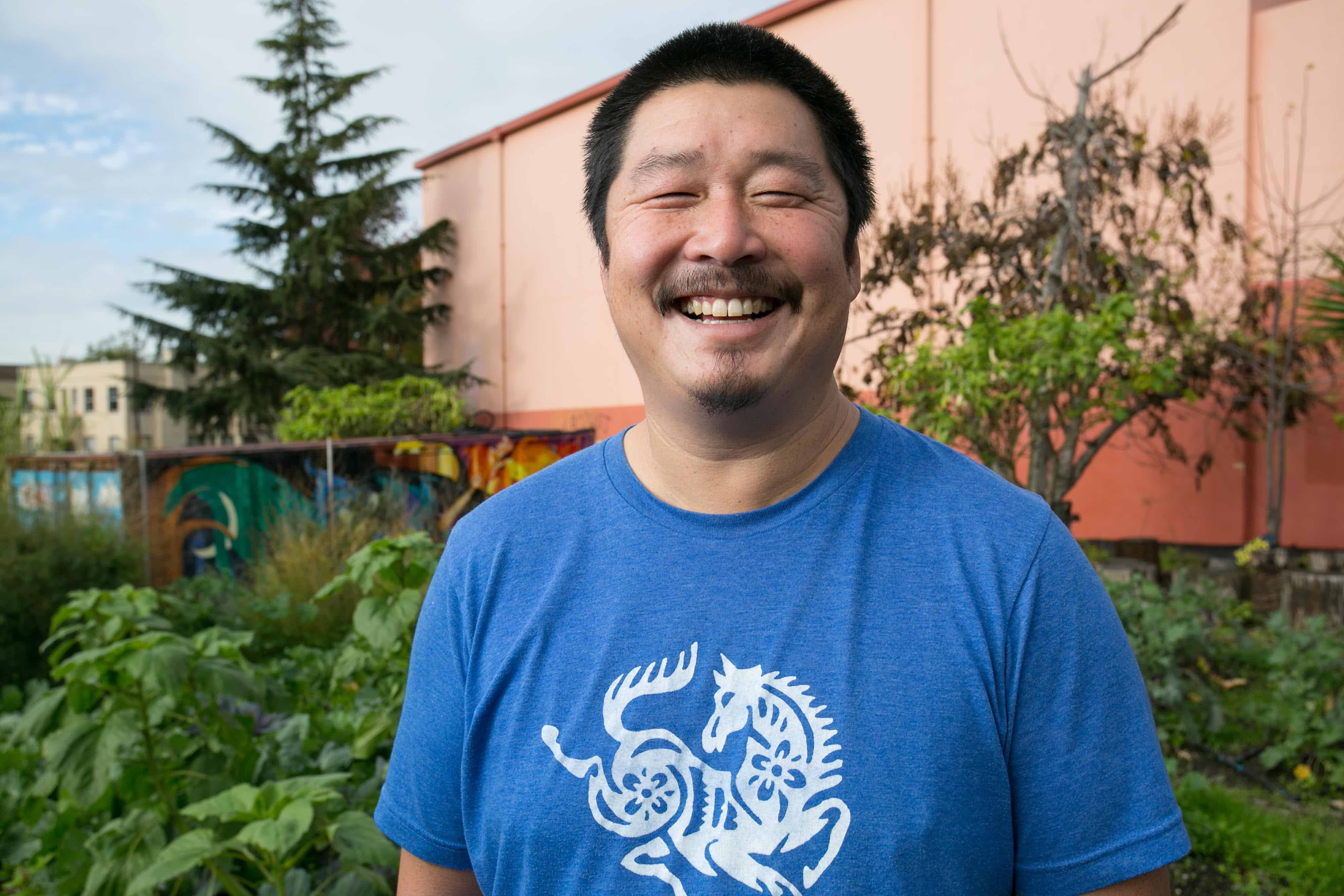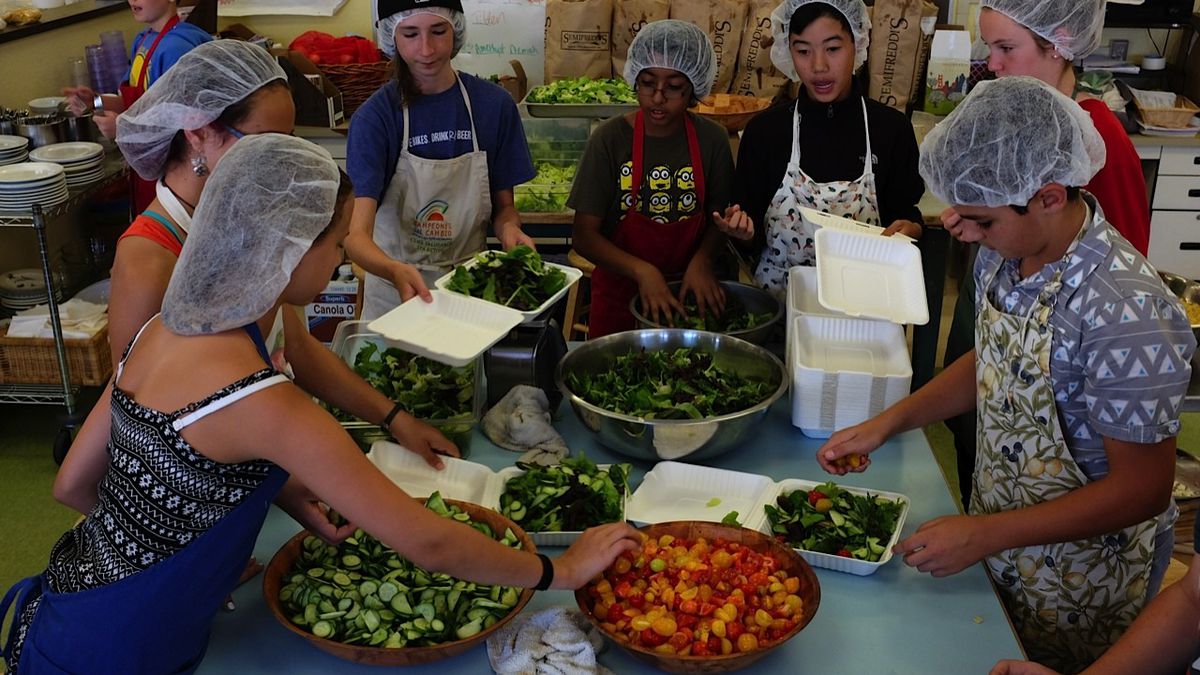
Like many innovative ideas, Tsang’s Growing Leaders class was born out of necessity — the result of Berkeley Unified School District losing $1.9 million in federal grant money that had previously helped fund the district’s fourteen school garden and kitchen programs. When those cuts hit in 2013, individual schools and parent teacher associations scrambled to make up the difference. The upshot was that most schools wound up eliminating the cooking component altogether.
See also:
A Garden Thrives in Berkeley
[jump]

A partnership with Josephine wound up being the perfect arrangement. Tsang created a year-long Growing Leaders elective during which seventh and eighth graders who signed up would plan and cook takeout meals, and then sell those meals on Josephine every other Thursday. Tsang’s hope was that the sales would make enough money to allow sixth graders at Willard to keep their cooking program. Meanwhile, Josephine was actively looking to give back to the community through nonprofit partnerships, co-founder Charley Wang explained. So the Growing Leaders class is able to use the Josephine platform without having to pay any surcharge, and has access to the company’s full range of educational materials, which include lessons on everything from calculating profit margins to setting up one’s food service area.
All told, the collaboration has been a big success. During each biweekly Josephine sale, Tsang’s class sells between 170 and 200 take-home meals for $10–$11 each — mostly to Willard parents and teachers, but also to customers who live near the South Berkeley school and to other Josephine users who stumble upon the Growing Leaders page. During the 2014–15 school year, Growing Leaders’ Josephine sales netted a $31,000 profit, all of which went back into Willard’s sixth-grade gardening and cooking program, helping to fill what would have been a $100,000 budget shortfall. In other words, it meant Tsang had $30,000 less to raise through grant-writing and other channels to keep the program in the black. According to Wang, this year’s profits for Growing Leaders are projected to be even higher: more than $50,000 by the end of the school year.
But ultimately, it’s the process that the 33 seventh and eighth graders in the Growing Leaders class undertake that is more impressive than the end result. Tsang said his approach is to allow the students to do everything. The kids decide what dishes to make and how much to charge, and they do all of the physical tasks connected to prepping, cooking, and packaging the meals.
In many ways, the students’ weekly schedule is not so different from that of a professional cook who’s gearing up to host a pop-up. During their off week, the students test and tweak two or three recipes — for curry chicken, for instance — before deciding on which version they will sell to the public. Josephine offers customers the ability to post both public and private feedback, so students will read the reviews and decide if they need to make any changes moving forward. Then, during production week, they’ll peel and chop all the raw ingredients on Monday and Tuesday, cook on Wednesday, and then package the meals on Thursday, which is also when the kids have a chance to sit down together and eat — to enjoy the fruits of their two weeks’ labor.

The entrée for the next Josephine sale — on Thursday, March 10, and available for pre-order starting this week (with the code “growingleaders,” if you’re a new Josephine user) — will be shepherd’s pie, and Tsang anticipates lively discussions around, for instance, whether they should use lamb or beef in the dish.
In many ways, Growing Leaders is a business class disguised as a gardening and cooking class. The lessons students learn about, say, unit pricing and social media marketing will be useful no matter what field they later pursue.
“We’re not trying to turn out cooks and gardeners,” Tsang said. “We’re trying to turn out kids who have options when they graduate from high school and college.”
For loyal customers, that makes the Growing Leaders takeout meals a cause worth supporting. But according to Tsang there’s a big side benefit, if you’re willing to take his word for it: The food really is delicious.














